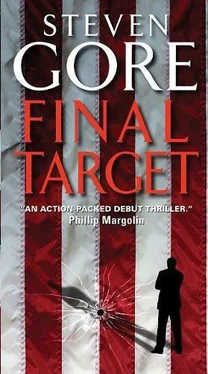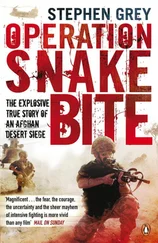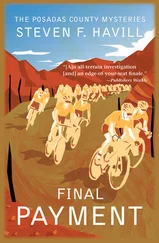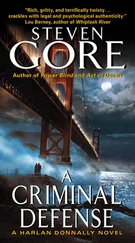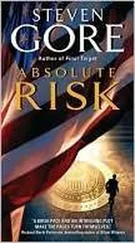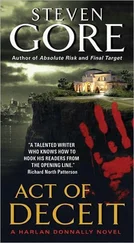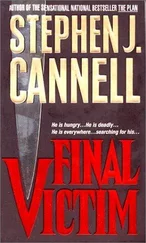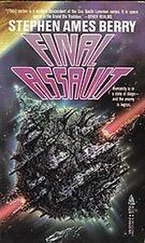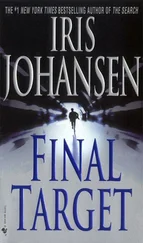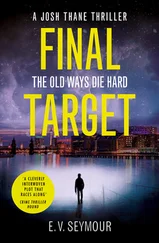Steven Gore - Final Target
Здесь есть возможность читать онлайн «Steven Gore - Final Target» весь текст электронной книги совершенно бесплатно (целиком полную версию без сокращений). В некоторых случаях можно слушать аудио, скачать через торрент в формате fb2 и присутствует краткое содержание. Жанр: Триллер, на английском языке. Описание произведения, (предисловие) а так же отзывы посетителей доступны на портале библиотеки ЛибКат.
- Название:Final Target
- Автор:
- Жанр:
- Год:неизвестен
- ISBN:нет данных
- Рейтинг книги:5 / 5. Голосов: 1
-
Избранное:Добавить в избранное
- Отзывы:
-
Ваша оценка:
- 100
- 1
- 2
- 3
- 4
- 5
Final Target: краткое содержание, описание и аннотация
Предлагаем к чтению аннотацию, описание, краткое содержание или предисловие (зависит от того, что написал сам автор книги «Final Target»). Если вы не нашли необходимую информацию о книге — напишите в комментариях, мы постараемся отыскать её.
Final Target — читать онлайн бесплатно полную книгу (весь текст) целиком
Ниже представлен текст книги, разбитый по страницам. Система сохранения места последней прочитанной страницы, позволяет с удобством читать онлайн бесплатно книгу «Final Target», без необходимости каждый раз заново искать на чём Вы остановились. Поставьте закладку, и сможете в любой момент перейти на страницу, на которой закончили чтение.
Интервал:
Закладка:
Gage looked at his watch. It was 5 A. M. in California. He didn’t want to wake up Faith by calling her on their home phone, so he decided to leave a message on her cell.
Faith answered on the first ring. “Did you make it there okay?”
“I just got in. Why are you awake so early?”
“I was watching the news last night and saw how tense things have become in Kiev. The chaos reminded me of when you and Jack were in Karachi.”
“That’s why I called. I thought you might be worried.”
Gage walked to an east-facing living room window with a view of Independence Square. Through the now freezing rain, he saw thousands of yellow flags bearing images of wheat stalks, the symbol of the Bread and Freedom Revolution, and the tent city in which the demonstrators spent the subzero nights.
“I can see it out of my window. Listen to this.”
Gage cracked open the window and faced his phone toward the crowd cheering the opposition leaders as they condemned the president and his corrupt administration.
When he put the phone back to his ear, he heard an echo of the demonstration.
“I just turned on CNN,” Faith said. “They’re panning the streets leading to the square. Can you see the troops?”
On a side street leading to the square, Gage spotted police clad in blue and soldiers in green waiting for orders, running their numbing hands over the barrels and trigger guards of their AK-47s to keep them from icing up.
“The cheers sounded heroic, almost triumphant as we were driving in,” Gage said. “Now they just sound naive. These people think they’re marching toward the promised land, but they’re really just backing toward the edge of the abyss.”
Gage didn’t wait for Faith’s next question before answering it.
“I’ll try to get out of here before that happens.”
CHAPTER 62
W hen Gage walked into Kiev’s Pechersk Restaurant, he found that it possessed no dining room and no windows. It was nothing more than six private rooms spread along a narrow Siberian birch-paneled hallway. There was no cashier, not even a cash register. The china was gilded, the utensils were silver, and the glasses were crystal.
The dozen armored Mercedes in the parking lot, along with the gauntlet of bodyguards he passed, told Gage that a properly aimed and timed missile would reduce the Ukrainian crime rate by half-and Slava acted like he owned the place.
“Gage,” Slava said, as Gage walked into the last room, “this is Ninchenko.”
Ninchenko rose stiffly, shook Gage’s hand across the table, and introduced himself by his first name and patronymic: Mykola Ivanovich. Gage sat opposite Slava. Ninchenko to Slava’s left. Six feet, one-eighty, mid-forties, slightly receding black hair, high cheekbones supporting skin reddened by the icy December wind.
The spaces between the three place settings were filled with plates of smoked sturgeon and salmon, red and black caviar, and fresh and pickled vegetables. Two vodka bottles stood in the center of the table.
“Major Ninchenko retired from SBU last month,” Slava said, popping a pickle into his mouth. “Twenty years.”
“I served for two years,” Ninchenko said, “then left to attend law school and returned for another eighteen.”
Ninchenko spoke with only a faint accent, which Gage recognized was a rarity for someone who grew up when Ukraine was still a Russian satellite.
“Where’d you learn English?” Gage asked. “You speak it better than most Americans.”
Ninchenko smiled at the compliment. “Kiev State University, and my parents. They worked in the Foreign Ministry in Soviet times.”
“And since then?”
Ninchenko shrugged. “Business, like everyone else.”
“What about you?” Gage raised an eyebrow toward Slava, who laughed through his smoked sturgeon-filled mouth.
Ninchenko glanced at Slava. “My division formed a private company to provide security during our off hours. Zherebec. It means stallion. Stallion Security Services. Marx was wrong, except about one thing, the withering away of the state. The state in Ukraine is nothing, just a way for the rich to make money. Business needs protection and predictability. Stallion provides it. The state can’t.”
“What is government anyway,” Slava interjected, “except protection racket? Protect some rich people from other rich people and all rich people from poor people. State always krysha for rich and when state not roof, we roof.”
“What about the Bread and Freedom Revolution?” Gage asked.
“At this point it’s only a protest,” Ninchenko said. “We’ll see if it becomes a revolution. And remember, revolutions in this part of the world tend not to overturn as much as fully revolve.”
“So Ukraine will end up where it started.”
“That’s what happened in Russia. They started with Brezhnev, toyed with Gorbachev and Yeltsin, and then ended up with Putin, the velvet glove on the iron fist. There won’t be truly free elections there for another generation.”
Gage looked over at Slava and watched him shove a buttered slice of baguette piled high with black caviar into his mouth. In his nonchalance, Gage recognized that Slava believed that despite how violently Ukraine was wrenched about, he’d stay on his feet.
“Tell me about Gravilov,” Gage said. “I’m wondering whether Matson is counting on him to provide the nest for him to land in.”
“The timing would be right,” Ninchenko said, his tone changing from a theorizing political scientist to a reporting intelligence officer. “Gravilov flew into Kiev yesterday, the domestic airport. He was in Ukraine already. He’s the roof for the Dnepropetrovsk clan, the president’s people.”
“If he’s imbedded here,” Gage asked, “why would he get so personally involved in a United States stock fraud and risk putting himself in the FBI’s crosshairs?”
“Hard currency. Euros, dollars, francs.” Ninchenko pointed west, as if toward its sources. “Our money is worth nothing outside of Ukraine and barely anything here. And times have changed. It used to be you could pay off a plant director and get steel at half the international price, then sell it on the world market. But the World Bank threatened to cut us off if we didn’t clean up the steel trade. So Gravilov had to find other sources of hard currency.”
Gage stabbed a piece of smoked salmon, cut it in two on his plate, and took a bite. He nodded at Slava in approval, then looked back at Ninchenko. “For what?”
Ninchenko raised a forefinger. “One example. Suppose the government is preparing to privatize a state-owned factory. How does Gravilov make sure that his bid is accepted? Say the plant is worth a hundred million Ukrainian hryvnia. He pays the government ten million in hryvnia for the plant domestically and a two-million-dollar bribe offshore.”
“How can he get away with paying a tenth of what it’s worth?”
“What’s ‘worth’?” Ninchenko spread his hands and shrugged. “Even in Soviet times the government calculated depreciation. Five percent a year for twenty years. So, on paper, a plant can be worth exactly zero, even if it is the largest in the world.”
Gage did the calculation. “If Gravilov cleared ten million dollars from SatTek,” Gage said, “he can convert that into a hundred million dollars in Ukrainian assets.”
Ninchenko nodded.
“So who’s he paying off?”
“Makarov, Hadeon Alexandervich. The president’s son.”
“Hadeon. Is that Russian or Ukrainian?”
“Ukrainian. It means ‘destroyer.’”
“Destroyer? What kind of man names a baby Destroyer?”
“Man who plan to make dynasty by crushing everybody,” Slava answered. “But son has bad genes. Hadeon Alexandervich is reckless. No limits.”
Читать дальшеИнтервал:
Закладка:
Похожие книги на «Final Target»
Представляем Вашему вниманию похожие книги на «Final Target» списком для выбора. Мы отобрали схожую по названию и смыслу литературу в надежде предоставить читателям больше вариантов отыскать новые, интересные, ещё непрочитанные произведения.
Обсуждение, отзывы о книге «Final Target» и просто собственные мнения читателей. Оставьте ваши комментарии, напишите, что Вы думаете о произведении, его смысле или главных героях. Укажите что конкретно понравилось, а что нет, и почему Вы так считаете.
